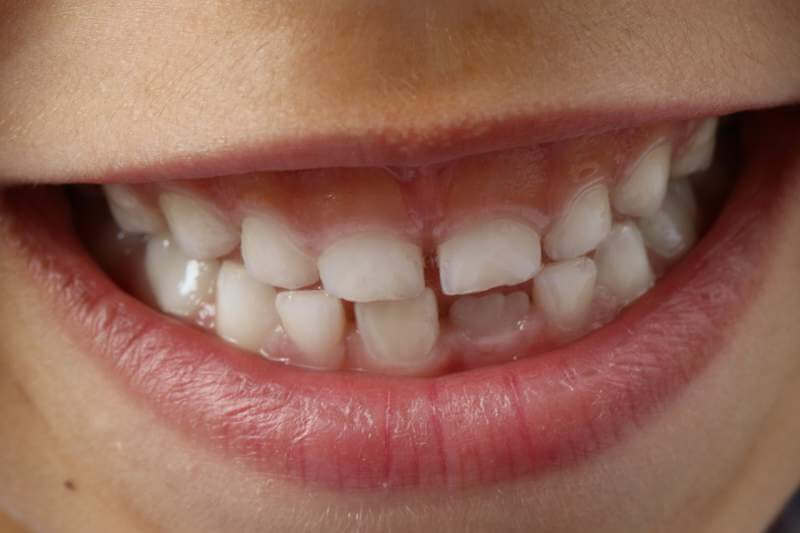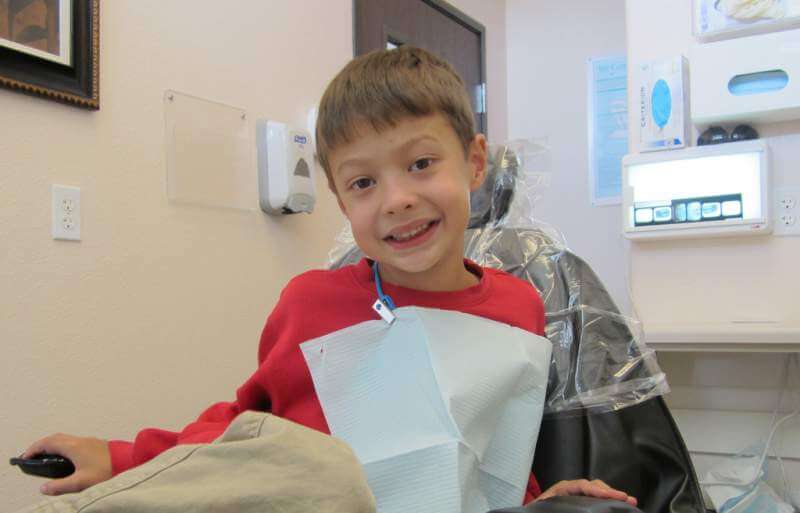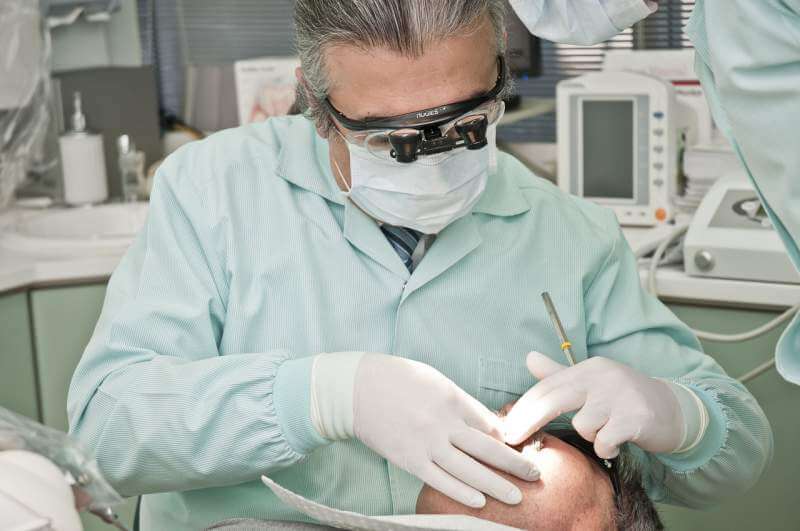Teeth grinding, also known as bruxism, is a condition where you grind, clench, or gnash your teeth. This condition can occur both while you are awake or while you sleep. Teeth grinding does not just affect adults. Somewhere between 15% to 33% of children grind their teeth, with most of these children doing so when their baby teeth or permanent teeth come in.
If you suspect that your child may be grinding their teeth, it is important to bring this up to their dentist. Read more to learn about the causes, effects, and treatments of teeth grinding in children.

What Causes Pediatric Teeth Grinding?
Dentists remain unsure about the exact cause of teeth grinding. However, there are several things that may be causing your child to grind their teeth. These reasons include:
- Improperly aligned teeth or abnormal bite
- In response to pain, such as pain from teething or an earache
- Stress, usually anxiety or anger
- Hyperactivity
- Certain medical conditions or medications
- Sleep disorders
While some children may grind their teeth during the day, it is common for teeth grinding to occur while they sleep. Your child may complain of a dull headache or a sore jaw if they are grinding their teeth, so be sure to listen to any complaints.

Image Source: https://www.flickr.com/photos/ov-desert-rat/6219887373
If you believe that your child may be grinding their teeth, make an appointment with your pediatric dentistry specialists. They can examine your child’s mouth and teeth to identify signs of teeth grinding, including tenderness of the jaw or wear on teeth.
Symptoms and Effects of Pediatric Teeth Grinding
Sometimes, it is easy to tell if your child is grinding their teeth because you will observe them in the act. However, it can be difficult to tell if your child is grinding their teeth if they do it in their sleep or other times that you are not watching them. In these cases, parents should look out for the symptoms of teeth grinding. According to the Mayo Clinic, these symptoms include:
- flattened, fractured, chipped, or loose teeth
- worn tooth enamel
- tooth pain or sensitivity
- jaw muscles that are tired or sore, or a locked jaw that will not completely open or close
- soreness or pain in the jaw, face, or neck
- earache-like pain that is not actually related to the ear
- dull headache
- damage from chewing on the inside of the cheek
- disrupted sleep
If your child is exhibiting one or more of these symptoms, talk to their dentist. Teeth grinding that is left untreated can lead to more severe dental issues, like fractured or loose teeth. Chronic grinding can wear teeth down, resulting in a need for bridges, crowns, root canals, implants, or dentures. While grinding of the baby teeth generally does not result in any negative effects, identifying and treating teeth grinding before it can affect adult teeth is crucial.
In the most severe cases, chronic teeth grinding can lead to the development of temporomandibular disorders (TMD). TMD can cause pain in the face, jaw, neck, shoulders and ears. Other symptoms includes locking jaws, clicking or popping sounds in the jaw joint, a tired feeling in the face, trouble chewing, and facial swelling.
Identifying pediatric teeth grinding early on can help prevent any severe consequences for your child’s dental health. Remember to talk to your child’s dentist as soon as you suspect teeth grinding.
Treating Teeth Grinding in Children
In order to determine if your child needs treatment for teeth grinding, their dentist will monitor their symptoms over the course of several visits. Often, younger children do not require any intervention since grinding of the baby teeth tends to be harmless. However, for older children whose symptoms are severe enough to require treatment, there are several options to consider.

The most common treatment for teeth grinding is fitting the patient with a splint or mouth guard. Dentists can create a splint or mouth guard that will protect your child’s teeth from the effects of grinding. If your child grinds their teeth during sleep, they can wear this mouth guard all through the night. Usually, these are made of acrylic or other soft materials and can be fitted to the top or bottom teeth. Mouth guards may not stop the teeth grinding itself, but they will mitigate any negative effects.
If the damage from your child’s teeth grinding is already significant, their dentist may need to perform reparative work. Depending on the damage, the dentist may need to reshape the surfaces of the teeth with bridges or crowns.
If your child’s teeth grinding seems to be linked to a sleep disorder or psychological issue, your dentist may refer them to the appropriate specialist. Treating the root cause of teeth grinding can go a long way to preventing your child from continuing the habit.
If your child’s teeth grinding is linked to stress, there are steps that parents can take to help manage their anxiety. Help them relax before bedtime with a bath, soothing music, or reading a book. Children with more severe anxiety may benefit from seeing a therapist; ask your child’s dentist if they have recommendations.
For children who grind their teeth during the day, it is important to train them to stop grinding their teeth. When they notice that they are grinding their teeth, placing the tip of their tongue between their top and bottom teeth can halt teeth grinding and relax the jaw muscles. Children may be able to break their teeth grinding habit just by correcting their behavior.
Conclusion
Often, children will grow out of their teeth grinding. However, communicating with their dentist to manage their condition will help prevent any long-term damage that it may cause. Keeping your children’s teeth healthy in their early years will help set them up for a lifetime of good dental health.
Author Bio:
Christina Cheryl is a Denver, Colorado-based freelance writer who has been blogging about health, fitness and living an active lifestyle for nearly 10 years. When she’s not brushing up against a deadline, she enjoys biking and rock climbing.
